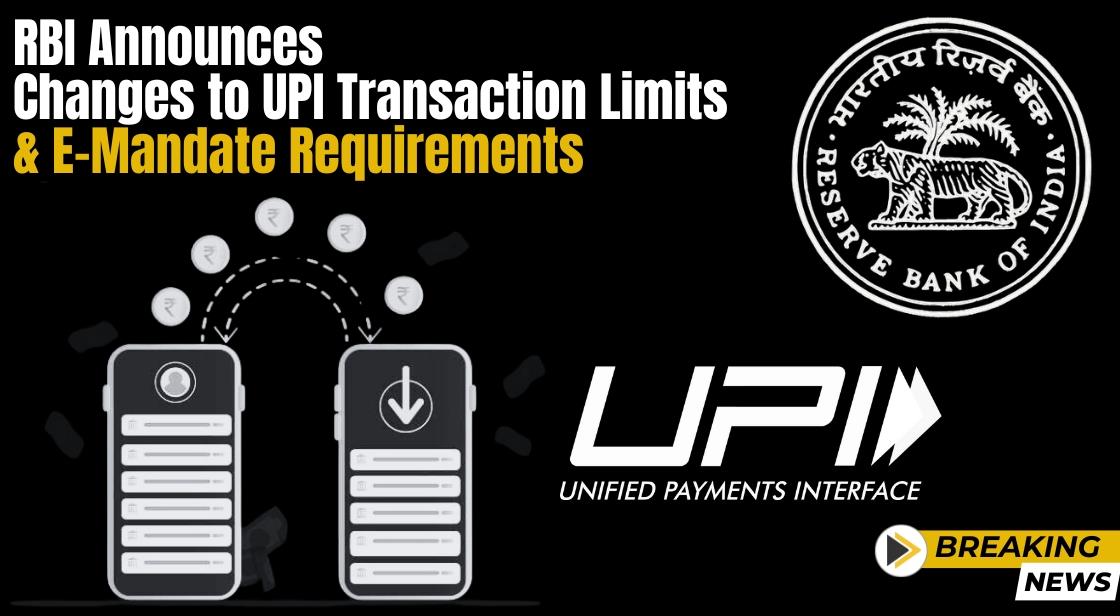RBI Announces Changes to UPI Transaction Limits and E-Mandate Requirements

Podcast
News Synopsis
RBI's Latest Proposals: UPI Transaction and e-Mandate Limit Modifications
The Reserve Bank of India (RBI) has announced proposed revisions to transaction limits for the Unified Payments Interface (UPI) across various categories and adjustments to e-mandate limits governing recurring online payments.
Proposed Changes to UPI Transaction Limits:
RBI Governor Shaktikanta Das highlighted the UPI's surging popularity, currently capped at Rs 1 lakh for most transactions, with exceptions in specific domains like Capital Markets, Collections, and Insurance, where the cap stands at Rs 2 lakh.
In December 2021, the transaction ceiling for UPI payments associated with the Retail Direct Scheme and IPO subscriptions increased to Rs 5 lakh. Now, RBI is proposing to extend this limit to transactions related to medical and educational services.
"To promote UPI usage for medical and educational purposes, we propose elevating the transaction limit from Rs 1 lakh to Rs 5 lakh for payments made to hospitals and educational institutions," stated Governor Das.
Enhanced Limits for e-Mandates:
Additionally, the RBI has proposed increased limits for e-mandates in specified categories, such as subscriptions to mutual funds, insurance premium payments, and credit card bill settlements.
RBI Governor Shaktikanta Das emphasized that the e-mandate processing framework, introduced in August 2019, aimed to balance the safety of digital transactions with user convenience. Presently, the execution limit for e-mandates without Additional Factor Authentication (AFA) stands at Rs 15,000 (last updated in June 2022).
He further noted that although approximately 8.5 crore e-mandates are registered, facilitating transactions worth around Rs 2,800 crore per month, certain categories—like mutual fund subscriptions, insurance premium payments, and credit card bill payments exceeding Rs 15,000—have shown slower adoption rates.
Proposed Exemption from Additional Factor Authentication:
Governor Das proposed exempting the Additional Factor Authentication requirement for transactions up to Rs 1 lakh in specific categories, including mutual fund subscriptions, insurance premium payments, and credit card bill settlements.
However, existing prerequisites such as pre- and post-transaction notifications and user opt-out facilities will persist. A revised circular detailing these changes will be issued shortly.
A Boon for Users and Businesses
These proposed changes are expected to benefit both users and businesses. Users will enjoy greater convenience in making high-value payments for medical and educational needs, while businesses can experience increased adoption of e-mandates for recurring payments, leading to improved efficiency and reduced costs.
Conclusion: A Step Towards a More Efficient and Convenient Digital Payments Landscape
The RBI's proposed modifications to UPI transaction limits and e-mandate requirements demonstrate its commitment to fostering an efficient and user-friendly digital payments environment in India. These changes are expected to further accelerate the adoption of digital payments across various sectors, contributing to a more inclusive and robust financial ecosystem.





